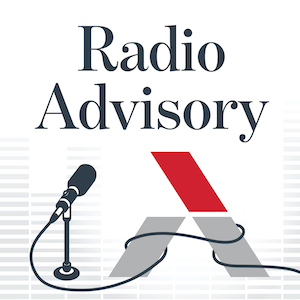Auto logout in seconds.
Continue LogoutAccording to a recent poll of health care providers, misinformation is the single most important factor influencing individuals' decision to not get vaccinated. Here are the most widely cited sources of Covid-19 misinformation—and what many health care experts are doing about it.
Radio Advisory: Aaron Carroll on how clinicians can combat medical misinformation
Where patients are getting their Covid-19 misinformation
For the poll, researchers surveyed 22,277 health care providers across all 50 states and the District of Columbia between Nov. 3, 2021, and Dec. 2, 2021.
When respondents were asked to rate on a scale of 1 to 10 how important Covid-19 misinformation was for unvaccinated patients' decision to not get vaccinated, 72% rated it at least a 6 on the scale, and 32% rated it a 10.
Similarly, when asked to rate on a scale of 1 to 10 how urgent of a problem Covid-19 misinformation is concerning care for their patients, 71% responded with at least a 6, and 30% responded with a 10.
Nearly three-quarters of respondents said their patients are receiving their Covid-19 misinformation from social media, while just under two-thirds said patients are receiving the misinformation from family and friends.
When asked what specific sources patients were receiving misinformation from, most respondents said Facebook, while just under half said Instagram, which is owned by Meta, the company that owns Facebook.
Why more health care providers are starting media channels
Since the start of the pandemic, there has been a surge in health care providers and scientists starting their own media channels to combat Covid-19 misinformation, Axios reports.
"It fills a void, a gap," said Peter Hotez, a vaccine researcher at the Baylor College of Medicine.
"Part of the reason so many have stepped up is that they have felt this has become part of their job—there's a real need and urgency to engage in this in the public sphere, not just in the doctor's office," said Celine Gounder, an infectious disease specialist and clinical professor at New York University.
According to Gounder, there has been building tension between the medical and science community and the media for years, but it's "on steroids" now. "We've definitely seen this with respect to vaccines for decades now, but it's on a whole other level now," she said.
Health care providers have helped lead outcries against platforms disseminating Covid-19 misinformation. ParentsTogether, a group of more than 2,500 doctors and parents, recently released a petition demanding tech companies remove and ban any accounts that spread Covid-19 misinformation.
And in November 2021, over 500 public health care professionals in the United States signed a letter addressed to Mark Zuckerberg, CEO of Meta[PBJ4], demanding that Facebook "take immediate, urgent action" to stop Covid-19 misinformation, and "disclose all data" about the "scope, reach, and content" of that misinformation.
Health care experts were also key players of the outcry against Spotify last month protesting its hosting of the "Joe Rogan Experience" podcast, which has spread Covid-19 misinformation. The outcry led musicians Neil Young, Joni Mitchell, and Nils Lofgren to remove their music from Spotify, as well as podcaster and professor Brené Brown to announce she'd stop producing content for Spotify "until further notice."
In response, Rogan apologized, saying his show has grown "out of control" and promised to "do [his] best to balance things out."
Spotify also started tagging all Covid-19-related content with an advisory that prompts users to view Spotify's "hub for data-driven facts and up-to-date information" from experts.
While some health care professionals don't get paid to combat Covid-19 misinformation, many said they believe doing so is an urgent matter of life and death.
"It's a labor of love—you do it because you really care," Gounder said. (Fischer/Owens, Axios, 2/1; Steele, Wall Street Journal, 1/31)
Listen to the Radio Advisory episode
Medical misinformation has been a significant problem for a long time, but amid the Covid-19 pandemic, the problem has become even more widespread. In this episode, host Rachel Woods sits down with Dr. Aaron Carroll, author, professor, and Indiana University chief health officer—to discuss what all clinicians should do to combat medical misinformation.
Plus, Advisory Board experts Solomon Banjo and Pam Divack offer their take on clinician’s role in online spaces (with patients and with each other) and translate those same principles for the rest of the industry.
Don't miss out on the latest Advisory Board insights
Create your free account to access 1 resource, including the latest research and webinars.
Want access without creating an account?
You have 1 free members-only resource remaining this month.
1 free members-only resources remaining
1 free members-only resources remaining
You've reached your limit of free insights
Become a member to access all of Advisory Board's resources, events, and experts
Never miss out on the latest innovative health care content tailored to you.
Benefits include:
You've reached your limit of free insights
Become a member to access all of Advisory Board's resources, events, and experts
Never miss out on the latest innovative health care content tailored to you.
Benefits include:
This content is available through your Curated Research partnership with Advisory Board. Click on ‘view this resource’ to read the full piece
Email ask@advisory.com to learn more
Click on ‘Become a Member’ to learn about the benefits of a Full-Access partnership with Advisory Board
Never miss out on the latest innovative health care content tailored to you.
Benefits Include:
This is for members only. Learn more.
Click on ‘Become a Member’ to learn about the benefits of a Full-Access partnership with Advisory Board
Never miss out on the latest innovative health care content tailored to you.

